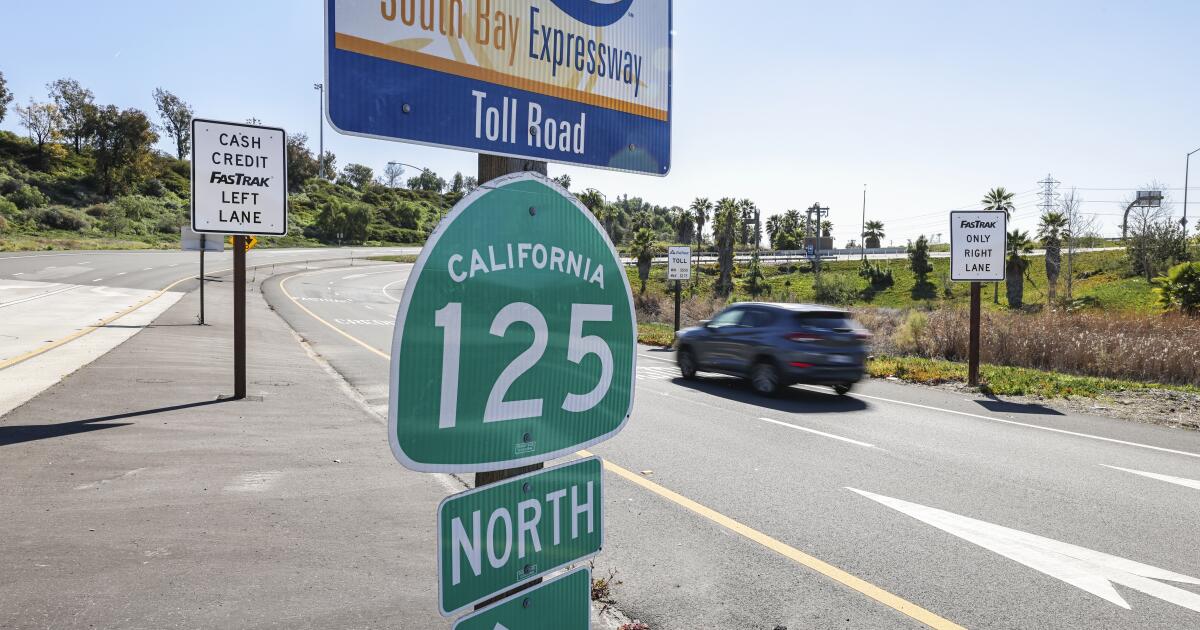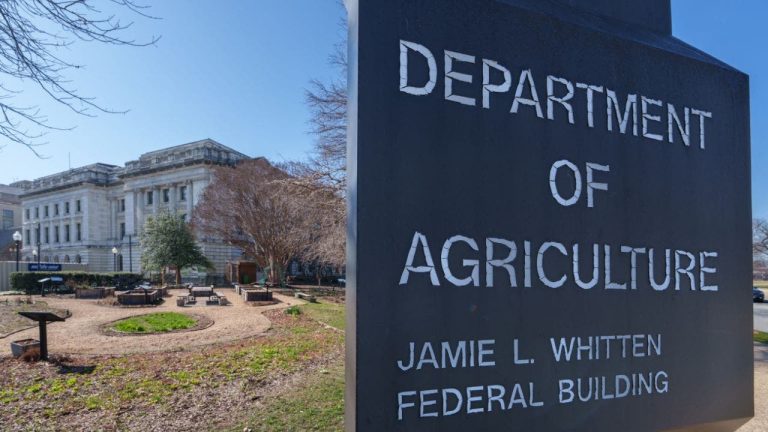

Financial reports detailing toll-road charges and collections cannot be trusted, and the department in charge lacks the internal controls needed to produce accurate data, a new investigation from the San Diego Association of Governments has found.
Not only that, senior managers at the regional planning agency known as SANDAG knew about the deficiencies for more than a year before they alerted the board of directors, the review said.
“SANDAG has suffered significant revenue losses due to a lack of adequate and timely monitoring,” says the report, which was introduced at a special SANDAG board meeting Friday. “At least $1 million in revenue has been lost due to a function in (software) not being turned on.”
The auditor’s findings were discussed at the same time federal investigators appear to have opened their own review of SANDAG’s practices.
Senior managers at the $1.3 billion planning agency informed employees earlier this week that they have been contacted by U.S. officials in recent days.
“SANDAG was recently contacted by the U.S. Department of Justice. We are assisting in any way we can and have informed the SANDAG board,” states the message to staff, a copy of which was obtained by The San Diego Union-Tribune.
“If you are contacted regarding this matter or have any questions please contact our general counsel John Kirk,” the note concludes.
It is not clear from the email what the FBI might be investigating, or whether it is related to the organization’s questionable oversight of the toll-collection contract.
According to the internal SANDAG review, the agency lost $3 million or more since ETAN Tolling Technology was hired to manage the toll-taking system for the 10-mile stretch of state Route 125 that charges drivers, the report said.
SANDAG knew even before the software was placed into use that it would not function properly, the report added. But the agency moved forward anyway, knowing that some drivers would be incorrectly charged both user fees and penalties.
“SANDAG’s plan to mitigate this risk was to conduct daily system check meetings and require contractors to submit regular monitoring reports,” the auditor’s report said. “When SR 125 went live, it was clear SANDAG and ETAN had not anticipated the volume of system issues.”
Earlier this year, the board hired a new vendor to manage the tolling system, although the new software will not be fully implemented until later this year. In the meantime, SANDAG will have to continue paying ETAN because it needs the company’s help to make a smooth transition, staff said.
Problems with the tolling technology were revealed publicly last fall, after former Chief Executive Officer Hasan Ikhrata and Chief Financial Officer Andre Douzdjian fired a finance official who said she had raised questions about the SR 125 tolling software.
Former finance director Lauren Warrem filed a wrongful-termination lawsuit against SANDAG in November, a case that is still pending. The transit agency was subsequently sued by a group of drivers who said they were wrongly charged fees and penalties due to the flawed software.
Ikhrata announced he would resign last summer but did not leave until late December. A recruitment effort is now under way, but it is not clear when an appointment will be made.
Interim chief executive Coleen Clementson announced at the start of the Friday meeting that she had accepted Douzjdian’s retirement Thursday. It was not immediately clear when Douzdjian would leave or when a successor might be named.
“Senior financial management allowed the situation to persist and did not intercede at an operational level to ensure the reliability of the financial information,” it said. “Instead, they dismissed concerns as not material.”
The special meeting was called to discuss the findings and figure out what steps the agency needs to take to make sure the mistakes laid bare in the report do not happen again.
Board Chair Nora Vargas ordered the report from the agency’s Office of the Independent Performance Auditor in January after a cavalcade of public criticism generated by the Warrem lawsuit.
At the meeting Friday, which culminated in a vote to adopt all of the auditor’s recommendations and await a formal management response, Vargas said it was unacceptable that top executives withheld the toll system failures from the board for more than one year.
“If there is something we need to know, it’s always important that we hear it immediately,” she said.
The findings from the independent auditor generated a spate of bickering among SANDAG board members over who knew what, and when, and why specifically information about the failed software was withheld.
“How deep does the rot go?” El Cajon mayor and SANDAG board member Bills Wells asked. “We need an independent investigation completely independent of SANDAG.”
Wells also called for an outside probe of the situation last year.
Encinitas mayor and SANDAG board member Tony Kranz said he found it challenging even to figure out how to fix the failures spelled out by the internal auditor. He and others said evidence suggested some crimes may have been committed.
“Since the release of the report, I’ve been dragging my jaw around,” Kranz said. “I’m just dumbstruck by the incompetence it reveals. … We need to explore if there is criminality here. We paid them time and time again when we experts said we can’t sign off on their invoices.”
San Diego attorney Joshua Gruenberg, who represents Warrem in her lawsuit against her former employer, said the auditor’s report vindicates his client.
The auditor “found that the fast-lane financial reporting was unreliable,” he said. “My client complained about that, and at the time that claim was met with hostility and indignation.
“She found that the finance department lacked adequate controls and information was not adequately recorded, both complaints Ms. Warrem lodged which at the time was met with anger and frustration,” Gruenberg added.
The lawyer also said: “If SANDAG had any integrity, it would beg my client to come back as CFO and straighten out the place.”
The regional planning agency has a history of failing to properly monitor its outside contractors and has been repeatedly warned by its internal auditor that it should improve its procurement practices.
“SANDAG utilizes outside consultants to perform project management duties instead of internal staff to perform project management and oversight functions,” states one report from last year that examined four years’ worth of contracts.
“Staff did not perform performance evaluations upon completion or termination of task orders,” the agency’s Office of Independent Performance Auditor found then.
SANDAG auditor Courtney Ruby said her investigation into the toll-collection problems was limited to evaluating the agency’s financial reporting, determining whether customer errors were rectified and conveyed to the board and noting any other significant matters uncovered during the review.
Her office did not examine the circumstances of ETAN being awarded the contract, why the firm’s failed performance was allowed to persist or why contracted project manager HNTB did not intervene.
But the report does note that senior agency officials knew about the software failures for at least 16 months before alerting the board of directors.
“The reasons SANDAG senior management did not address the serious concerns with ETAN’s ability to perform sooner is not a part of this investigation,” the report said. “But it is a matter that should be reviewed in detail.”
Rebecca Jones, the San Marcos mayor and a SANDAG director, said the board needs to do more than limit its criticism and scrutiny to ETAN and the former chief executive.
“We need some accountability here, and I’m not sure we’re talking about that,” she said. “I’m embarrassed. … Everybody is blaming Hasan, which is pretty easy to do when he’s not here, but who else was involved?”
Jones singled out the full executive team, SANDAG lawyers and even board leaders.
The report produced by the Office of the Independent Performance Auditor was not a formal audit, auditor Ruby noted.
Rather, it is the product of an investigation into what went wrong with the ETAN and the oversight provided by outside consultant HNTB, she said.
Clementson said she only became aware of the failures in October, when Ikhrata formally briefed board members during a closed-session meeting.
The SANDAG executive leadership will present a formal response to the investigation in the next few weeks, she told the board.





